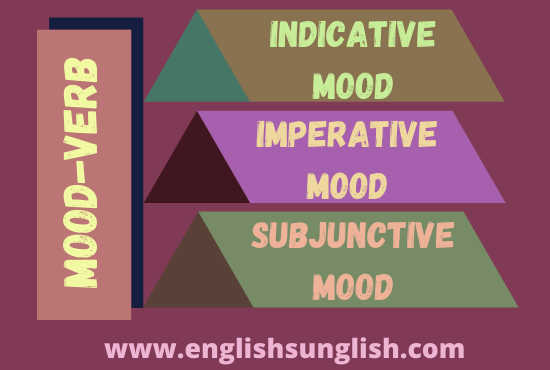Adverbs of Degree| Definition, Use, Examples
Adverbs of Degree are Adverbs that modify or describe the intensity or degree of an adjective, verb, or another adverb. They answer the question “to what extent?”. Adverbs of Degree can be used to make comparisons, show emphasis, or add intensity to a sentence. Following are some examples of Adverbs of Degree that are often used with other Parts of Speech to convey the meaning of conversation in more clear meaning.
“Almost” As An Adverb of Degree
The adverb “altogether” originated from the Old English word “ealltogædere” which means “all together”. It is used to indicate the entirety of something or to emphasize the complete extent or degree of a situation. “Altogether” is commonly used to convey a high degree of completeness or totality.
Examples of “Almost” As An Adverb of Degree
Following are some examples of “Almost” as an Adverb of Degree.
- She almost missed the train this morning.
- The soup is almost too hot to eat.
- He almost never takes a break during work hours.
- The movie is almost over, so don’t leave yet.
- I almost forgot to wish you a happy birthday!
- She almost cried when she saw how beautiful the sunset was.
“Altogether” As An Adverb of Degree
The adverb “altogether” originated from the Old English word “ealltogædere” which means “all together”. It is used to indicate the entirety of something or to emphasize the complete extent or degree of a situation. “Altogether” is commonly used to convey a high degree of completeness or totality.
Examples of “Altogether” As An Adverb of Degree
Following are some examples of “Altogether” as an Adverb of Degree.
- The project was altogether too complicated for me to handle alone.
- After the accident, the car was altogether destroyed.
- I think we should altogether avoid discussing politics at dinner tonight.
- The performance was altogether stunning, and the audience gave a standing ovation.
- We are altogether grateful for your help in making this event a success.
- I’m afraid I don’t altogether understand what you’re trying to say.
“Any” As An Adverb of Degree
The adverb “any” originated from the Old English word “ǣnig” which means “anyone” or “anything”. As an adverb of degree, it is used to indicate the level of extent or degree of a quality or condition. “Any” is commonly used in negative or interrogative sentences to indicate the absence or uncertainty of a particular quality or condition.
Examples of “Any” As An Adverb of Degree
Following are some examples of “Any” as an Adverb of Degree.
- He didn’t make any effort to apologize for his behavior.
- Do you have any idea where my phone could be?
- She doesn’t eat any meat, fish, or dairy products.
- I don’t have any experience with this type of software.
- He can’t play any musical instruments, but he loves to sing.
- Do you have any plans for the weekend?
“As” As An Adverb of Degree
The adverb “as” originated from the Old English word “ealswā” which means “equally so”. As an adverb of degree, it is used to indicate the level of extent or degree of a quality or condition that is similar to another quality or condition. “As” is commonly used in comparative statements to indicate the degree of similarity between two or more things.
Examples of “As” As An Adverb of Degree
Following are some examples of “As” as an Adverb of Degree.
- She’s as tall as her father now.
- He works as hard as anyone else in the company.
- The dress was as beautiful as I had hoped it would be.
- He wasn’t as enthusiastic about the project as I was.
- The hotel was as luxurious as we expected it to be.
- She can dance as gracefully as a ballerina.
“Enough” As An Adverb of Degree
The adverb “enough” originated from the Middle English word “enough” which means “sufficient”. It is used to indicate a satisfactory level or amount of something, or the degree to which a particular quality or condition has been reached. “Enough” is commonly used to convey a high degree of satisfaction or adequacy.
Examples of “Enough” As An Adverb of Degree
Following are some examples of “Enough” as an Adverb of Degree.
- I’m not feeling well enough to go to work today.
- The soup is hot enough to burn your tongue if you’re not careful.
- Have you studied enough for the exam?
- She’s talented enough to be a professional musician.
- Is the cake sweet enough for your taste?
- He didn’t run fast enough to win the race.
“Fully” As An Adverb of Degree
The adverb “fully” originated from the Middle English word “fulliche” which means “completely” or “entirely”. It is used to indicate the complete extent or degree of a particular quality or condition. “Fully” is commonly used to convey a high degree of completeness or thoroughness, often indicating that something has been done to the fullest extent possible.
Examples of “Fully” As An Adverb of Degree
Following are some examples of “Fully” as an Adverb of Degree.
- He’s not fully recovered from his illness yet.
- I fully support your decision to pursue your dream.
- Have you fully considered all the options before making a decision?
- The package hasn’t fully arrived yet, but it should be here soon.
- She’s fully committed to her new job and is working long hours.
- The machine isn’t fully operational, so we can’t start production yet.
“No Better” As An Adverb of Degree
The phrase “no better” is not an adverb of degree, but rather a comparative phrase used to indicate the absence of a better quality or condition. It is often used to emphasize the degree to which something is superior to all other alternatives. The etymology of this phrase is the combination of the words “no” and “better”, which both have Old English origins.
Examples of “No Better” As An Adverb of Degree
Following are some examples of “No Better” as an Adverb of Degree.
- There’s no better time than the present to start a new project.
- She’s no better at cooking than she was last year.
- This restaurant is no better than the one we went to last week.
- There’s no better feeling than completing a challenging task.
- He’s no better at keeping secrets than a gossip.
- The weather is no better today than it was yesterday.
“Partly” As An Adverb of Degree
The adverb “partly” originated from the Middle English word “partly” which means “in part” or “to some extent”. It is used to indicate the degree to which a particular quality or condition exists, while also acknowledging that it is not fully present. “Partly” is commonly used to convey a moderate or intermediate degree of a particular quality or condition.
Examples of “Partly” As An Adverb of Degree
Following are some examples of “Partly” as an Adverb of Degree.
- The reason for his absence was partly due to illness and partly due to family reasons.
- She’s partly responsible for the project’s success.
- The painting is partly finished; the artist still needs to add some details.
- I’m partly excited and partly nervous about the upcoming event.
- His success is partly due to his hard work and partly due to his natural talent.
- The delay was partly caused by bad weather and partly caused by mechanical issues.
“Pretty” As An Adverb of Degree
The adverb “pretty” originated from the Middle English word “praty” which means “clever” or “skillful”. It is used to indicate a moderate degree of a particular quality or condition, often indicating that something is attractive or appealing in a subtle way. “Pretty” is commonly used to convey a high degree of charm or attractiveness.
Examples of “Pretty” As An Adverb of Degree
Following are some examples of “Pretty” as an Adverb of Degree.
- The movie was pretty good, but it wasn’t amazing.
- She’s pretty tired after working all day.
- The park is pretty crowded on weekends.
- I’m pretty sure I left my keys on the kitchen table.
- The dress is pretty expensive, but it’s worth the price.
- He’s pretty talented at playing the guitar.
“Quite” As An Adverb of Degree
The adverb “quite” originated from the Middle English word “quit” which means “free” or “released”. As an adverb of degree, it is used to indicate the degree to which a particular quality or condition exists, often conveying a strong sense of emphasis. “Quite” is commonly used to convey a high degree of completeness, intensity, or satisfaction.
Examples of “Quite” As An Adverb of Degree
Following are some examples of “Quite” as an Adverb of Degree.
- The coffee is quite hot; be careful not to burn yourself.
- She’s quite busy with her work these days.
- The exam was quite difficult, but I think I did well.
- He’s quite successful in his business ventures.
- The weather is quite chilly today; you might want to wear a jacket.
- The book was quite long, but it was also very interesting.
“Rather” As An Adverb of Degree
The adverb “rather” originated from the Middle English word “rathe” which means “quickly” or “promptly”. As an adverb of degree, it is used to indicate the degree to which a particular quality or condition exists, often conveying a sense of preference or choice. “Rather” is commonly used to convey a moderate or somewhat strong degree of a particular quality or condition.
Examples of “Rather” As An Adverb of Degree
Following are some examples of “Rather” as an Adverb of Degree.
- I’m rather busy at the moment, so I can’t chat for long.
- The soup is rather salty, but it’s still tasty.
- He’s rather shy, so it takes him a while to warm up to people.
- The movie was rather disappointing, to be honest.
- She’s rather tall for her age; she’ll probably be a model one day.
- The concert was rather loud, but that’s to be expected for a rock show.
“So” As An Adverb of Degree
The adverb “so” originated from the Old English word “swa” which means “in that way” or “as such”. As an adverb of degree, it is used to indicate the degree to which a particular quality or condition exists, often conveying a strong sense of emphasis or agreement. “So” is commonly used to convey a high degree of a particular quality or condition.
Examples of “So” As An Adverb of Degree
Following are some examples of “So” as an Adverb of Degree.
- The cake is so delicious; I want another slice.
- He’s so kind and always helps others in need.
- The car is so fast that it can go from 0 to 60 in under 5 seconds.
- She’s so talented that she can play multiple musical instruments.
- The sun is so bright today that I need to wear sunglasses.
- The traffic is so bad right now that it will take hours to get to our destination.
“Too” As An Adverb of Degree
The adverb “too” originated from the Old English word “tō” which means “in addition” or “also”. As an adverb of degree, it is used to indicate that something is excessive or beyond what is desired or expected. “Too” is commonly used to convey a negative connotation or sense of disapproval, indicating that a particular quality or condition has exceeded an acceptable level.
Examples of “Too” As An Adverb of Degree
Following are some examples of “Too” as an Adverb of Degree.
- The coffee is too hot to drink right now.
- He’s too tired to go out tonight.
- The movie was too long, and I fell asleep in the middle.
- She’s too young to understand the complexity of the situation.
- The music is too loud; we need to turn it down a bit.
- The dress is too small for me to wear comfortably.
“Very” As An Adverb of Degree
The adverb “very” originated from the Middle English word “verray” which means “true” or “genuine”. As an adverb of degree, it is used to indicate the degree to which a particular quality or condition exists, often conveying a strong sense of emphasis or intensity. “Very” is commonly used to convey a high degree of a particular quality or condition.
Examples of “Very” As An Adverb of Degree
Following are some examples of “Very” as an Adverb of Degree.
- The pizza is very hot; let it cool down before eating.
- She’s very intelligent and excels in her studies.
- The view from the top of the mountain is very beautiful.
- He’s very excited to start his new job next week.
- The meeting was very productive, and we made a lot of progress.
- The book was very interesting and kept me hooked until the end.


